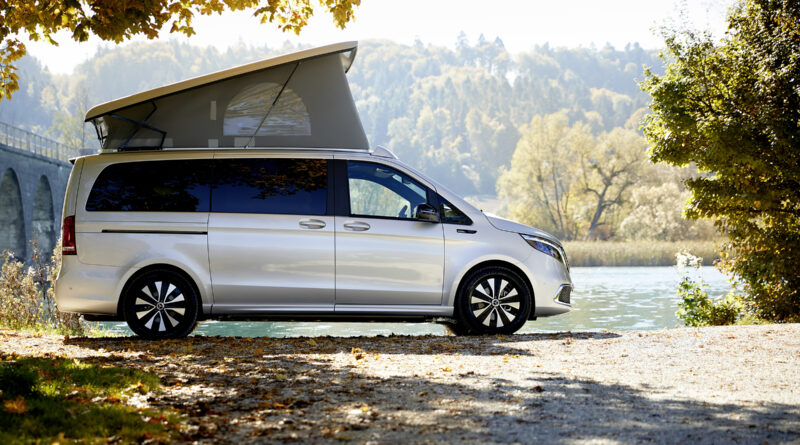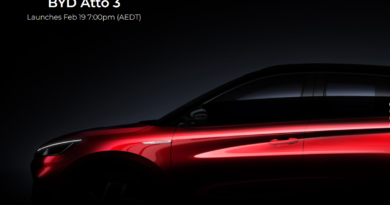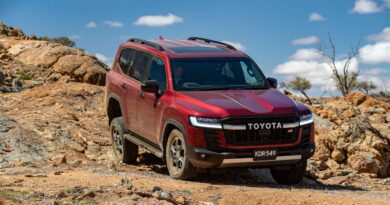EV Mercedes-Benz EQV campervan: ‘the future is electric’
Mercedes-Benz has shown its idea of an EV campervan in the form of the EQV electric vehicle kitted out with camping accessories.
Based on the upcoming EQV van – an all-electric people mover version of the V-Class – the EQV campervan is indicative of the German brand’s push to an all-EV future.
It takes the thinking of the Mercedes-Benz Marco Polo but replaces anything diesel with electric components.
The campervan conversion components are supplied by Swiss company Sortimo and includes a pop-top roof with a bed and an in-built kitchen.
Due in Australia in the second half of 2022 – along with dozens of other new EVs – the EQV is based on the V-Class van but replaces its diesel engine with an electric motor.
COMPLETE GUIDE: Towing a caravan or trailer with an EV or hybrid
READ MORE: EV towing solution: power-up your caravan
READ MORE: Mercedes-Benz EQG shock: G-Wagen goes EV with 4WD concept
READ MORE: Target EV: The year each car brand promises to go electric
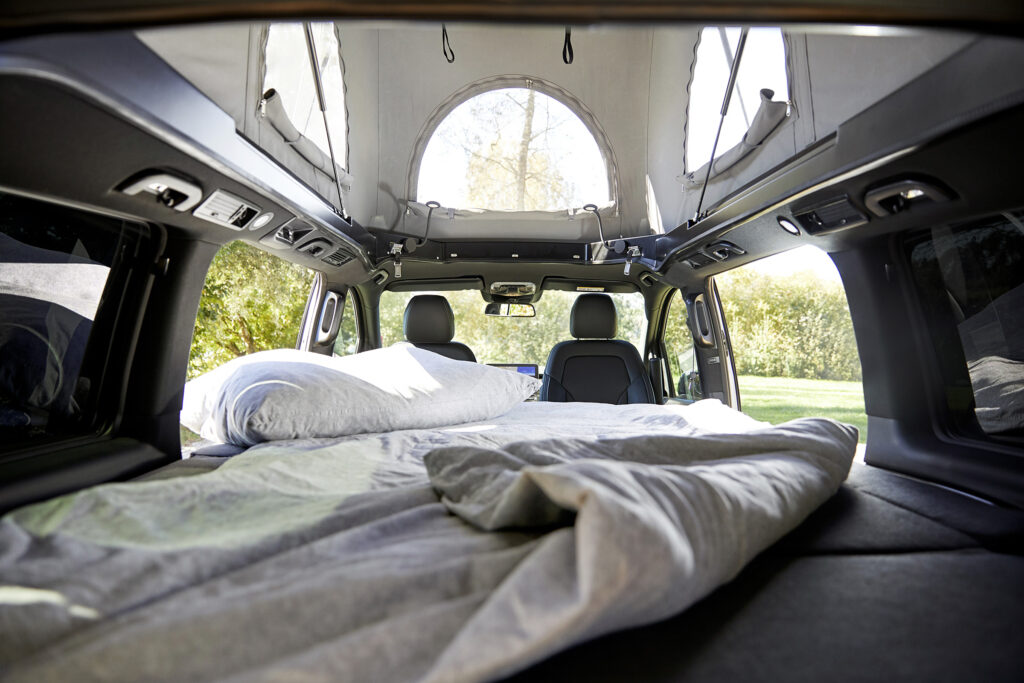
Whereas the Marco Polo uses a 120kW/380Nm four-cylinder turbo diesel driving the rear wheels, the EQV300 gets a single 150kW/362Nm electric motor driving the front wheels.
The lack of a driveshaft to the rear wheels presumably allows more space for batteries beneath the floor.
Overseas the EQV will be offered as a shorter range EQV250 (with a 60kWh battery) but in Australia we’re expected to only see the EQV300 with a 90kWh electric motor.
In EQV300 guise the electric van is claimed to have about 355km of EV range.
The Sortimo campervan option is also available with two solar panels on the roof. However, with a combined output of 400 Watts it means eight hours in direct sunlight would only yield 3.2kWh of electricity, or around 11km of range.
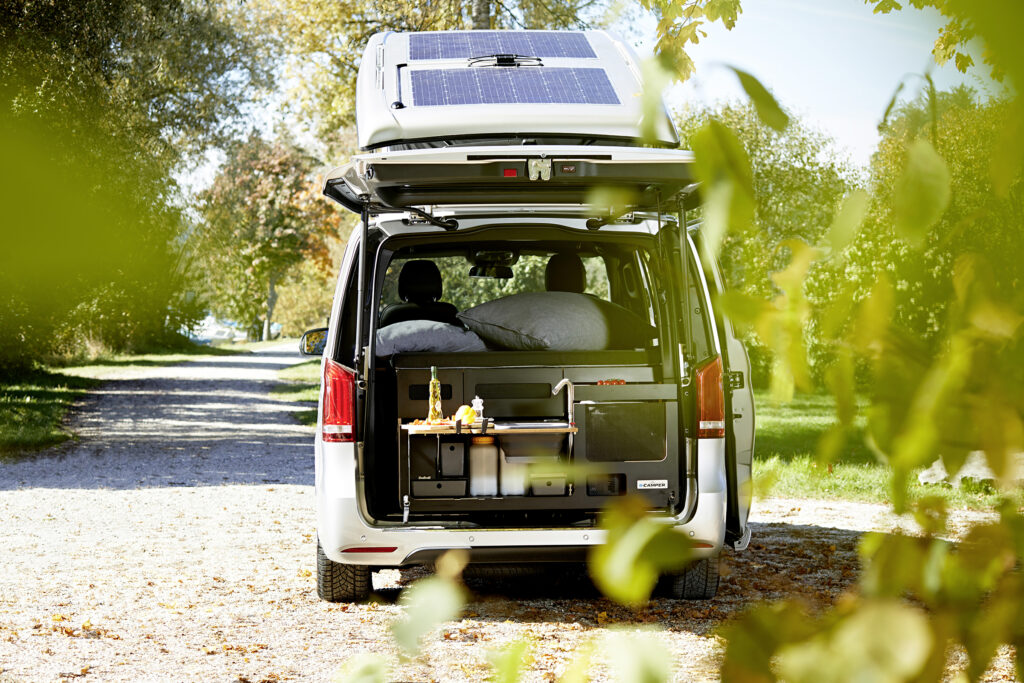
So, DC fast charging infrastructure or long camping stays will be critical to the success of electric motorhomes in a country such as Australia, as will advances in battery technology and vehicle design; Mercedes-Benz recently showcased its EQXX concept, which is a precursor to a 2024 sedan with up to 1000km of range.
The global head of sales and marketing for Mercedes‑Benz Vans, Klaus Rehkugler, says EV motorhomes will be a part of the landscape for the brand.
“The motorhome market is of strategic importance for Mercedes‑Benz Vans,” said Rehkugler. “We want to continue to grow here and play a pioneering role in terms of innovation and sustainability.
“For us it is clear: The future is electric, also in the motorhome industry!”
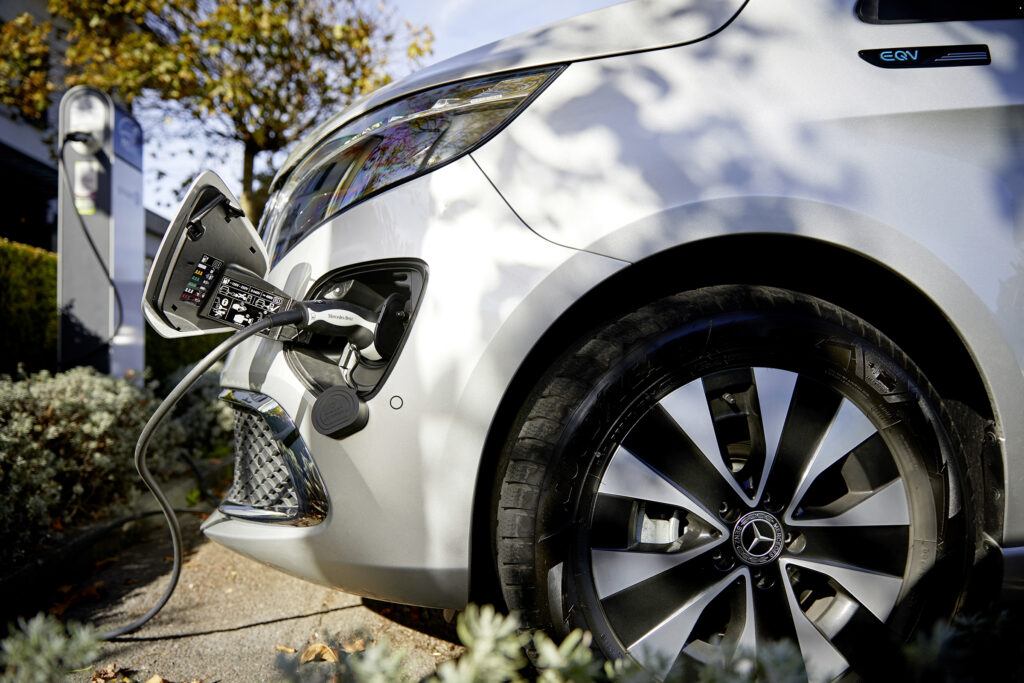
No word on whether the EQV electric camper will be offered in Australia, but Mercedes-Benz Vans Australia says its “ambition is to offer you an all-electric alternative of every model in our range by the end of 2024”.
Given the Marco Polo campervan is already on sale here that suggests an EV alternative is in the medium-term planning (we’ve popped in a call to Mercedes-Benz Australia but are awaiting a reply).
However, it’s unlikely to be cheap. The Marco Polo currently sells from $77,420 plus on-road costs and all Mercedes-EQ elecrtric models to date have had a decent price premium over their ICE counterparts.
Adventure and camping are increasingly becoming viable in the EV world.
Brands are increasingly looking to improve towing options with EVs and some overseas companies are looking at innovative solutions for towing a caravan with an EV.
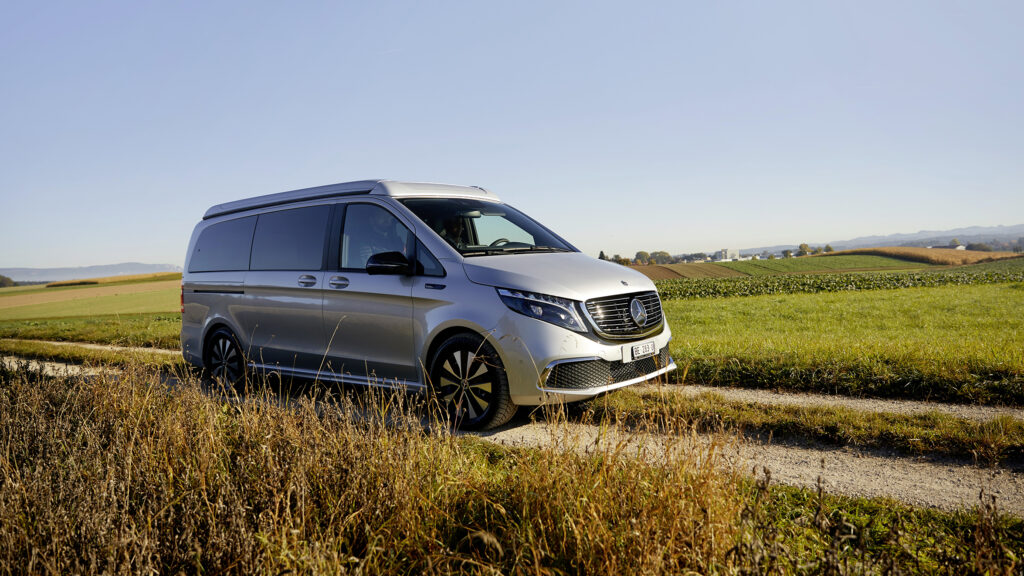
The challenge with any campervan or caravan is the impact the additional weight can have on EV range.
Towing a modest 1.5-tonne trailer can halve the usable range of a Tesla Model X, according to one person we know who has done so.
In a country like Australia that could limit how far people can travel each day.

